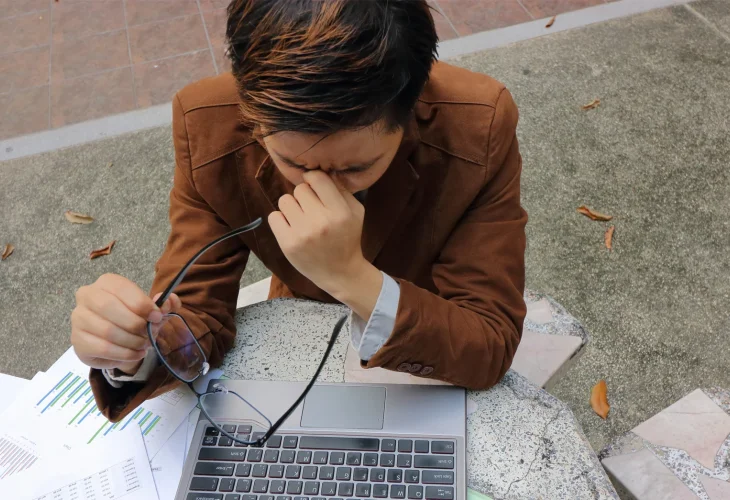Work Burnout? These Are the Signs Your Body and Mind Are Urging You to Stop
The relentless pace and endless demands might have a steep price. What are the signs of burnout and how can you handle it before breaking down?
 (Photo: Shutterstock)
(Photo: Shutterstock)Work is an inseparable part of our lives - but what happens when it starts "working against us"? More and more people are experiencing mental and physical burnout as a result of the relentless race to achieve more, succeed further, and please everyone. The feelings are familiar to us all: chronic fatigue, emotional detachment, lack of motivation, and a drop in performance.
When did this pace turn from managing a stable routine into an unavoidable crash course? It's time to familiarize yourself with burnout in depth, recognize the signs in time, and learn how to stop - before it's too late.
What Is Work Burnout?
Work burnout is a state of emotional, mental, and physical exhaustion resulting from prolonged exposure to demanding requirements under high pressure. According to the definition by the World Health Organization (WHO), burnout is a response to chronic stress in the workplace that is not managed properly. It is a subtle condition that develops gradually, but its effects can be severe: decrease in functionality, health issues, and even crises in personal relationships.
Signs of Burnout: How Do You Know It's More Than Just "Ordinary Stress"?
Chronic fatigue: Even if you slept for long hours, you wake up exhausted.
Low efficiency and productivity: Time passes and you struggle to perform basic tasks.
Detachment and cynicism: A sense of alienation from the team, the organization, or even the work itself.
Physical symptoms: Frequent headaches, reduced immune resilience, and even digestive problems.
Feeling of meaningless: You ask yourself "What is all this for?" far too often.
The Devastating Effects: On the Mind, Career, and Personal Life
Burnout doesn't stop at the office door. It permeates all areas of life:
Mental health: Depression, anxiety, and lack of interest in activities that previously excited us.
Impacted relationships: Burnout brings impatience and an inability to pay attention to others.
Health issues: Chronic stress increases the risk of heart problems, diabetes, and obesity.
How to Stop Burnout - and Start Breathing Again
Listen to your body and mind: Signs of burnout don't "disappear on their own".
Set clear boundaries: Learn to separate home from work - physically and mentally.
Scheduled rest: Daily or weekly breaks are not a luxury - they are essential.
Talk about it: Share with colleagues, friends, and professionals. Acknowledgment of the situation is a first step towards healing.
Physical activity and mindfulness: Tools that balance the body and improve mental resilience.
Work can enrich us, but when it becomes entangled with our lives incessantly - it might drain us of ourselves. Burnout is not a decree of fate, and it can be prevented and treated. Your body is signaling to you - listen to it. At the end of the day, your health, vitality, and ability to truly be present in life are worth more than any deadline or task.
Rabbi Eyal Ungar - Burnout Facing the Positive Self-Image of a Person. Watch

